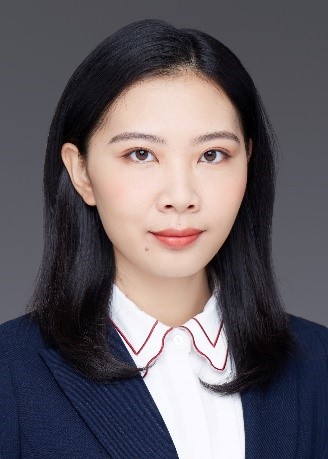
李喆珺教授,博士生导师
邮箱:zhejunli@whu.edu.cn
通讯地址:湖北省武汉市武昌区武汉大学物理科学与技术学院B214
个人主页:http://jszy.whu.edu.cn/lizhejun/zh_CN/index.htm
教育及工作经历
2010-2014 天津大学,学士
2014-2019 香港中文大学,博士
2019-2020 香港中文大学,副研究员
2020-2022 香港中文大学,博士后研究员
2022-至今 武汉大学,教授
个人简介
李喆珺教授本科毕业于天津大学化工学院,博士毕业于香港中文大学机械及自动化工程系。现任武汉大学物理科学与技术学院教授,博士生导师,主要研究方向为新型电化学储能技术研发,包括高稳定性液流电池,高能量密度金属-硫电池及高安全性锂离子电池等系统设计、材料研发及机理研究,以第一作者身份在Nature Energy (获选封面), Advanced Materials, Advanced Energy Materials, Chem等国际期刊上发表多篇学术论文,是2021年度香港青年科学家奖获得者。多次受邀在全球青年科学家峰会及美国电化学会议上作学术报告。储能技术是实现间歇性太阳能、风能等可再生能源广泛应用于未来无碳电网的重要环节,课题组致力于深化拓展电化学储能在未来大规模储能及混合动力交通领域的广泛应用,从电化学界面机理,材料研发,体系设计及计算模拟多维度深入探究,对于应对能源危机与气候变化有重要意义。
代表性论文
1. Li Z. and Lu Y.C.*, “Polysulfide-based redox flow batteries with long life and low levelized cost enabled by charge-reinforced ion-selective membrane”, Nature Energy, 2021, 6, 517-528 (I.F.: 60.858, this paper is highlighted as the cover for Nature Energy)
DOI: https://doi.org/10.1038/s41560-021-00804-x
2. Li Z. and Lu Y.C.*, “Advanced Aqueous Redox Flow Batteries Design: Ready for Long-duration Energy Storage Applications?”, MRS Energy & Sustainability, 2022
DOI: https://doi.org/10.1557/s43581-022-00027-x
3. Li Z. and Lu Y.C.*, "Materials Design of Aqueous Redox Flow Batteries: Fundamental Challenges and Mitigation Strategies", Advanced Materials, 2020, 2002132. (I.F.: 30.849)
DOI: https://doi.org/10.1002/adma.202002132
4. Li Z., Jiang H., Lai N.C., Zhao T.S., Lu Y.C.* "Designing Effective Solvent–Catalyst Interface for Catalytic Sulfur Conversion in Lithium–Sulfur Batteries", Chemistry of Materials, 2019, 31,10186-10196 (I.F.: 9.811)
DOI: https://doi.org/10.1021/acs.chemmater.9b03885
5. Li Z., Zhou Y., Wang Y., and Lu Y.C.*, “Solvent‐Mediated Li2S Electrodeposition: A Critical Manipulator in Lithium–Sulfur Batteries”, Advanced Energy Materials, 2019, 9, 1802207. (I.F.: 29.368, this paper is among the top 10% most downloaded papers in 2018.1~ 2019.12)
DOI: https://doi.org/10.1002/aenm.201802207
6. Li Z. and Lu Y.C.*, "Redox Flow Batteries: Want More Electrons? Go Organic!", Chem, 2018, 4, 2020 (I.F.: 22.804)
DOI: https://doi.org/10.1016/j.chempr.2018.08.032
7. Li Z., Weng G.M., Zou Q., Cong G., and Lu Y.C.*, "A High-Energy and Low-Cost Polysulfide/Iodide Redox Flow Battery", Nano Energy, 2016, 30, 283-292 (I.F.: 17.881)
DOI: https://doi.org/10.1016/j.nanoen.2016.09.043
8. Yao Y., Wang Z., Li Z., and Lu Y.C.*, “A Dendrite-Free Tin Anode for High-Energy Aqueous Redox Flow Batteries”, Advanced Materials, 2021, 2008095 (I. F., 30.849)
DOI: https://doi.org/10.1002/adma.202008095
9. Weng G.M., Li Z., Zhou Y., Cong G., and Lu Y.C.*, "Unlocking the capacity of iodide for high-energy-density zinc/polyiodide and lithium/polyiodide redox flow batteries", Energy & Environmental Science, 2017,10, 735-741 (I.F.: 38.532)
DOI: https://doi.org/10.1039/C6EE03554J
10. Zhou Y., Li Z. and Lu Y.C.*, "A stable lithium–selenium interface via solid/liquid hybrid electrolytes: Blocking polyselenides and suppressing lithium dendrite", Nano Energy, 2017, 39, 554–561 (I.F.: 17.881)
DOI: https://doi.org/10.1016/j.nanoen.2017.07.038
11. Cong G., Zhou Y., Li Z., and Lu Y.C.*, " A Highly Concentrated Catholyte Enabled by a Low-Melting-Point Ferrocene Derivative", ACS Energy Letters, 2017, 2, 869–875 (I.F.: 23.101)
DOI: https://doi.org/10.1021/acsenergylett.7b00115
招生与招聘
课题组常年招收科研实习本科生、硕士和博士研究生、博士后研究员。欢迎对储能、电池系统及电化学感兴趣的同学和青年学者的加入。